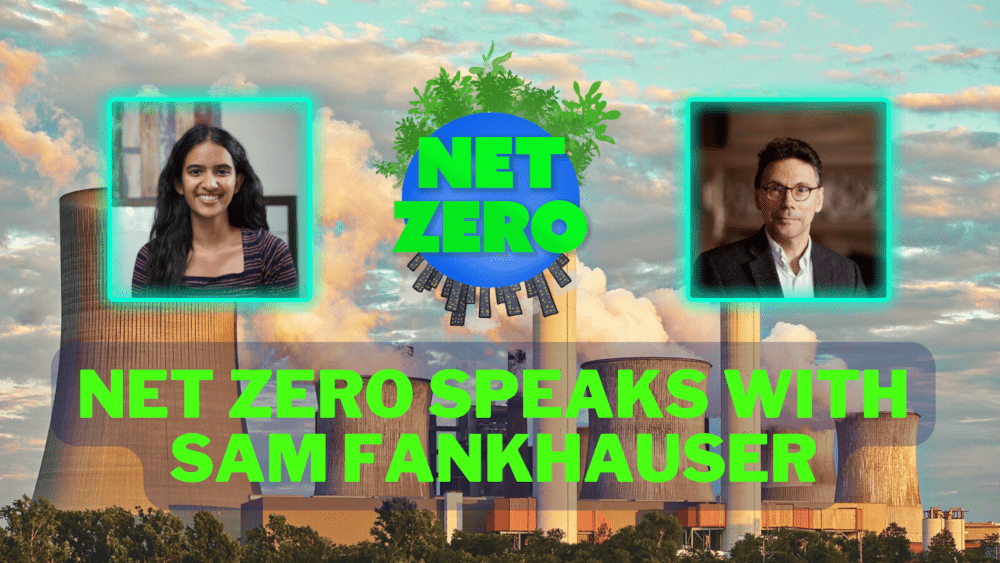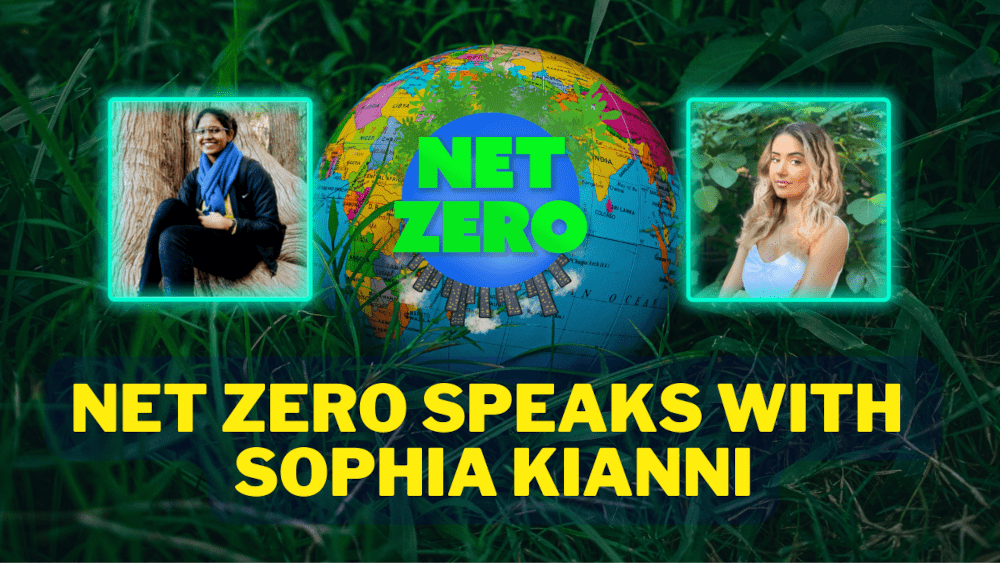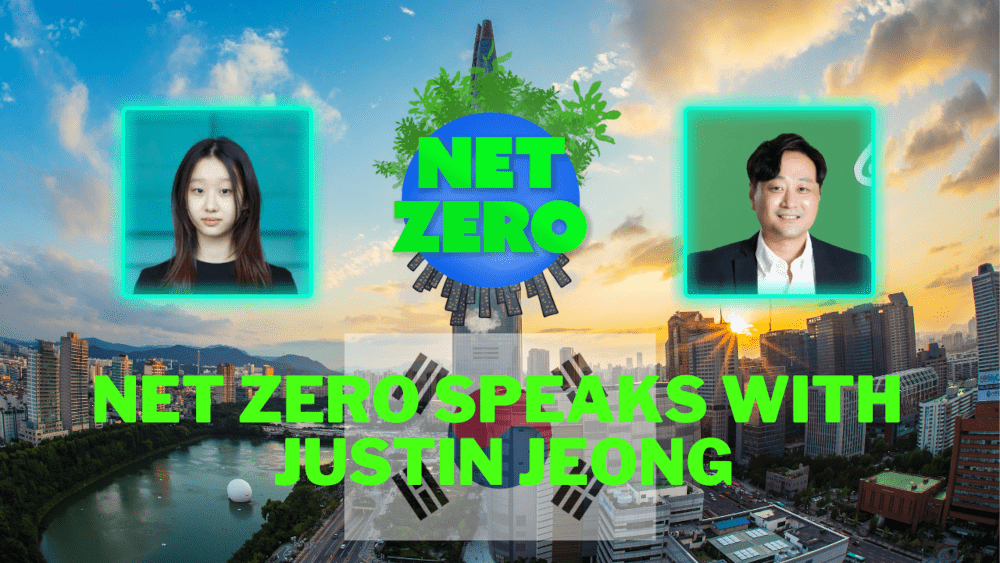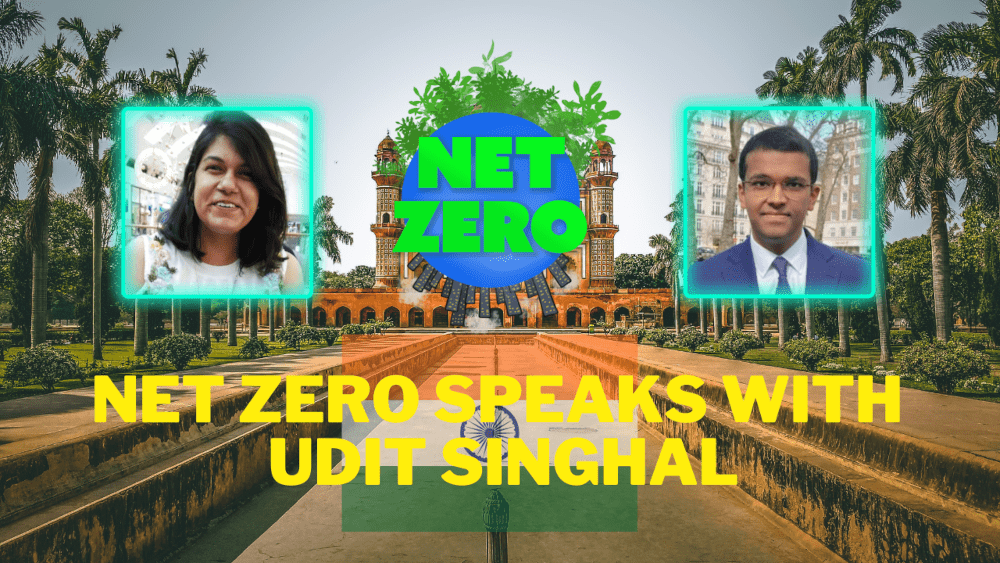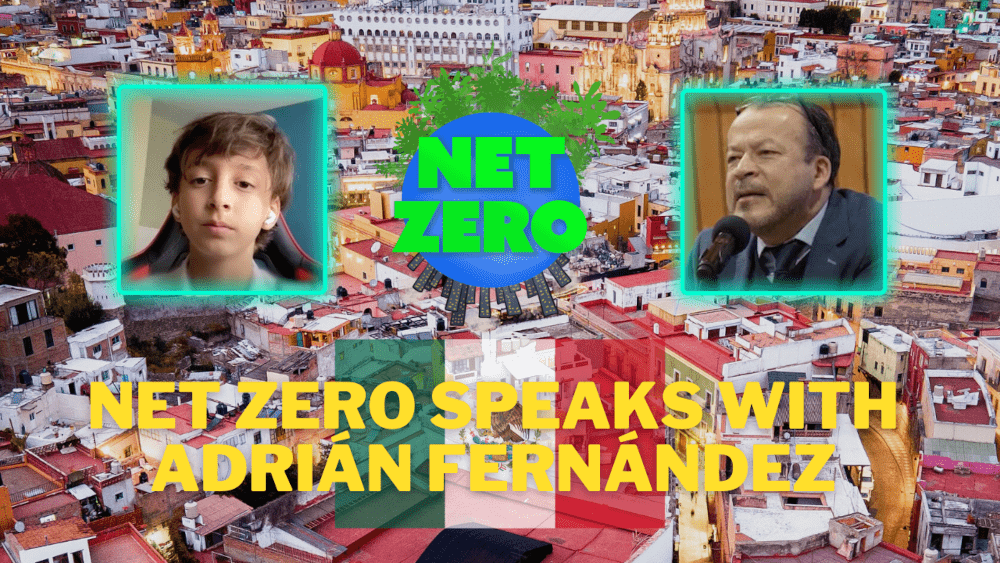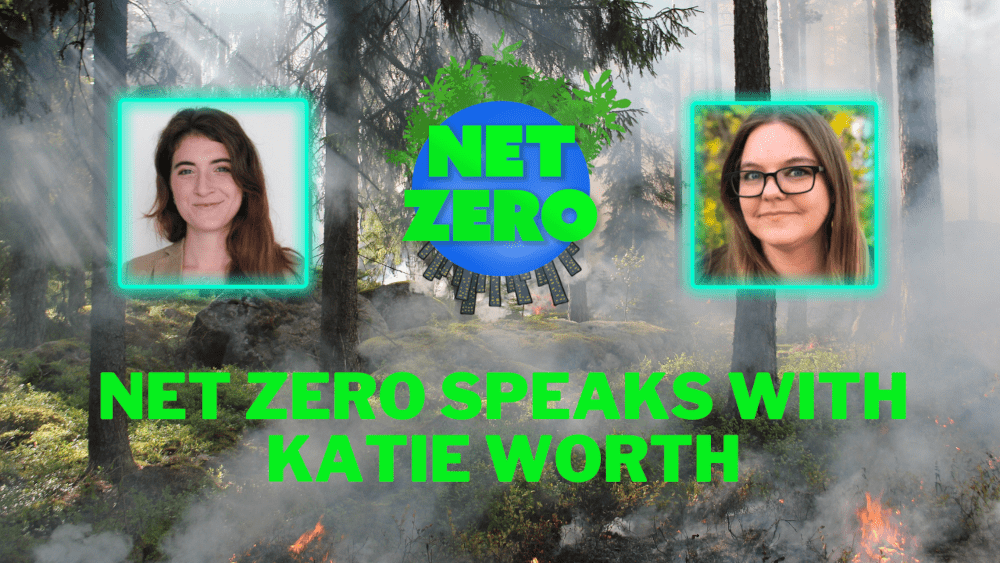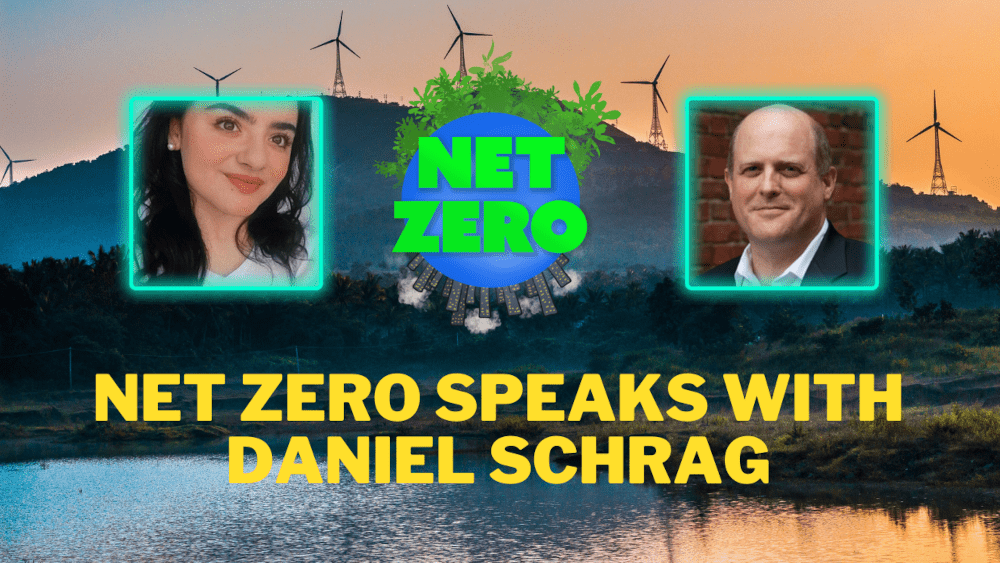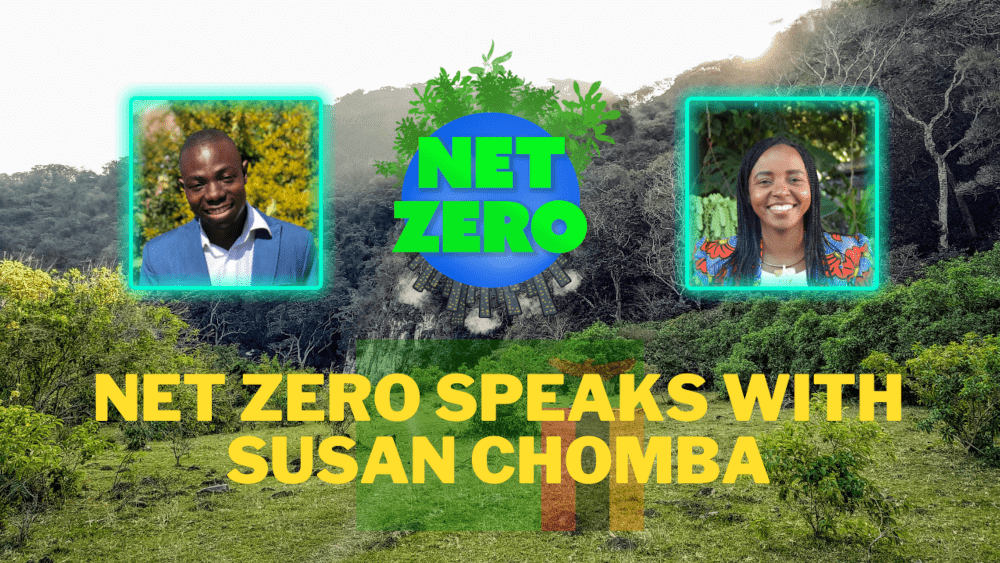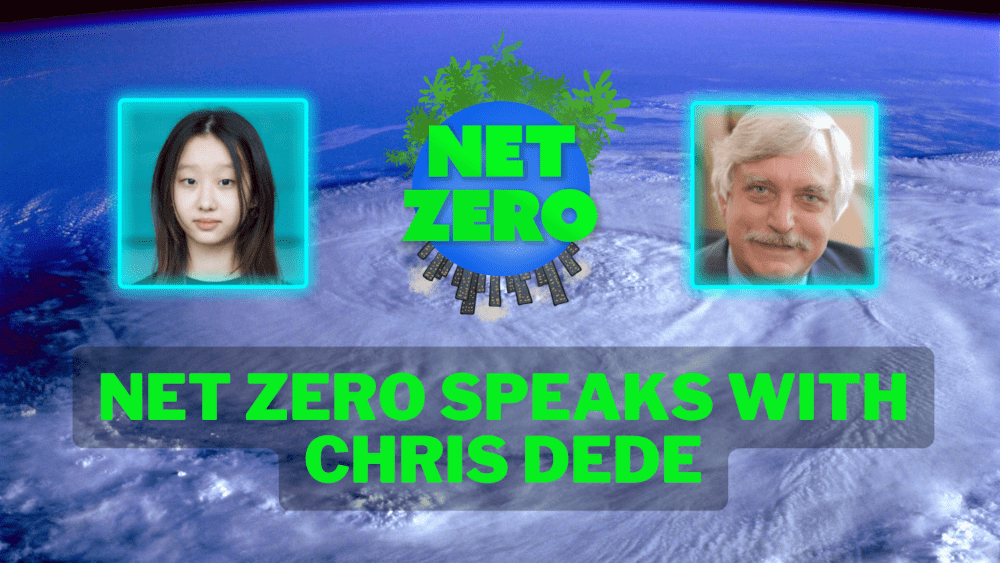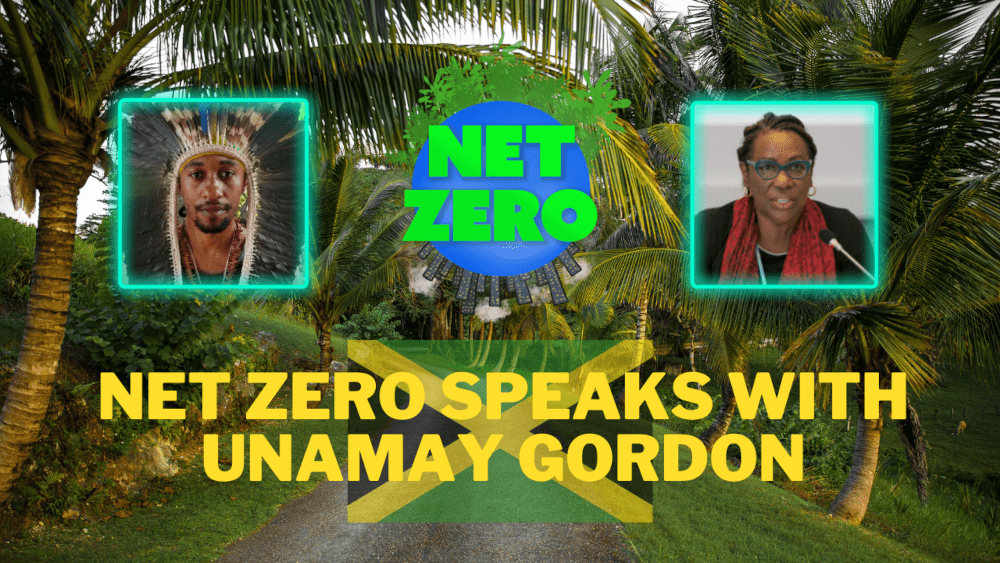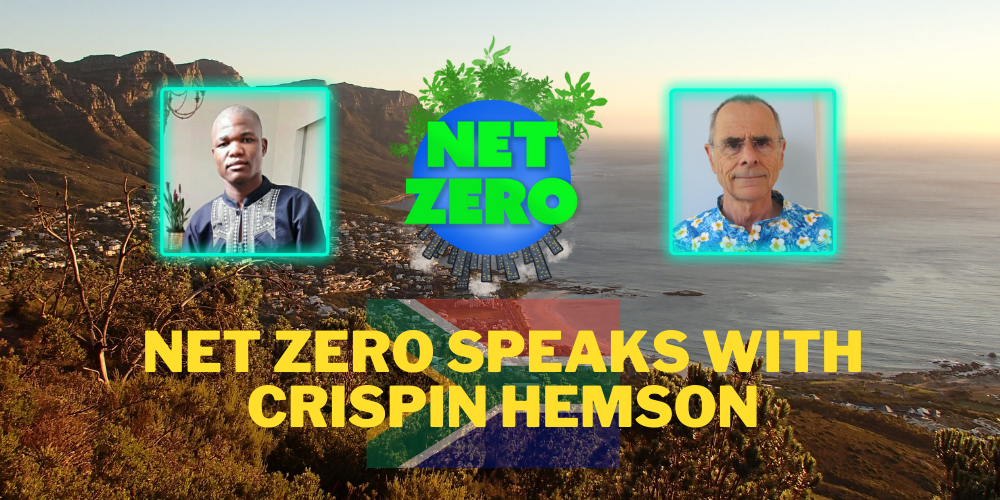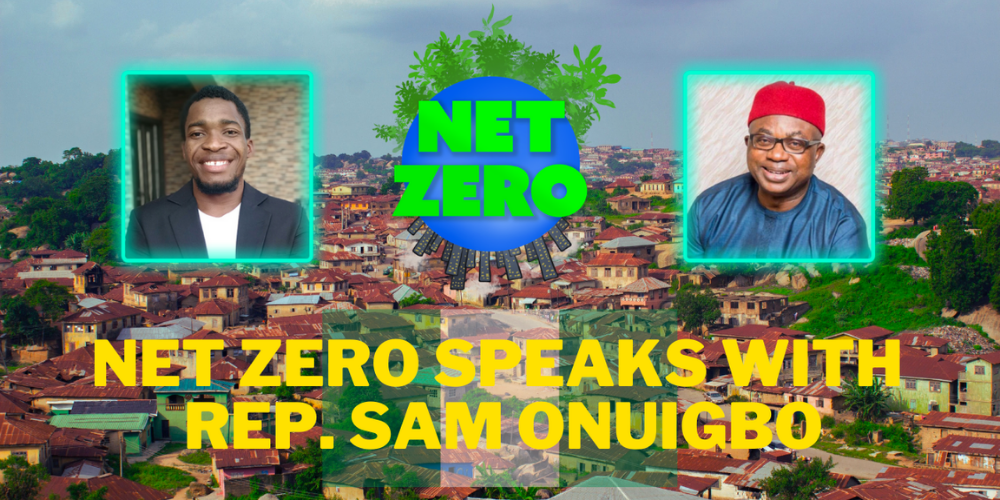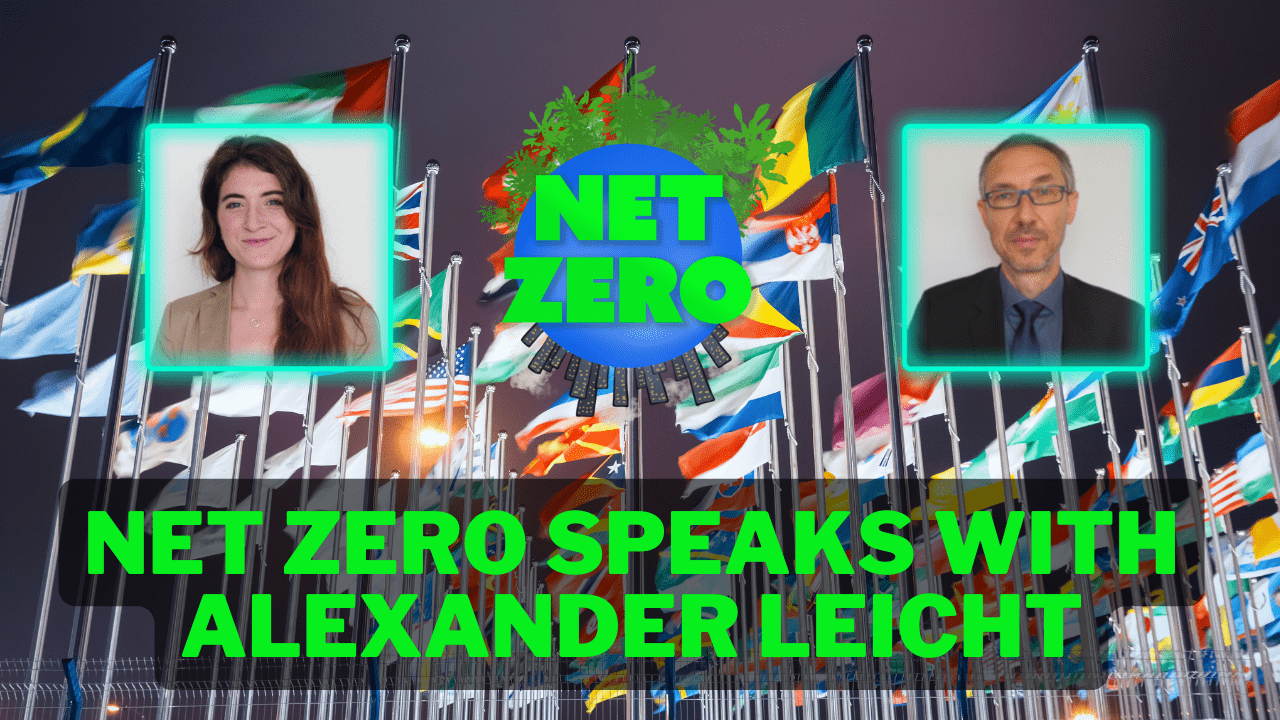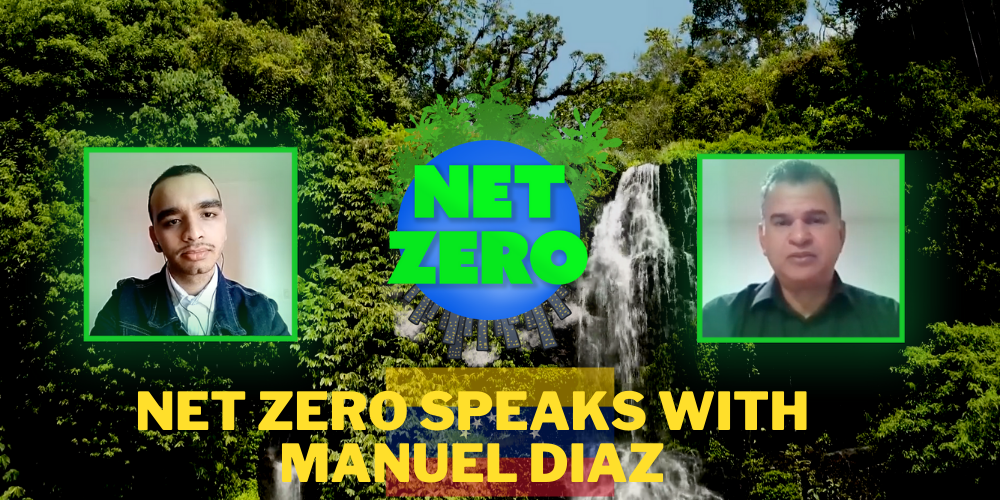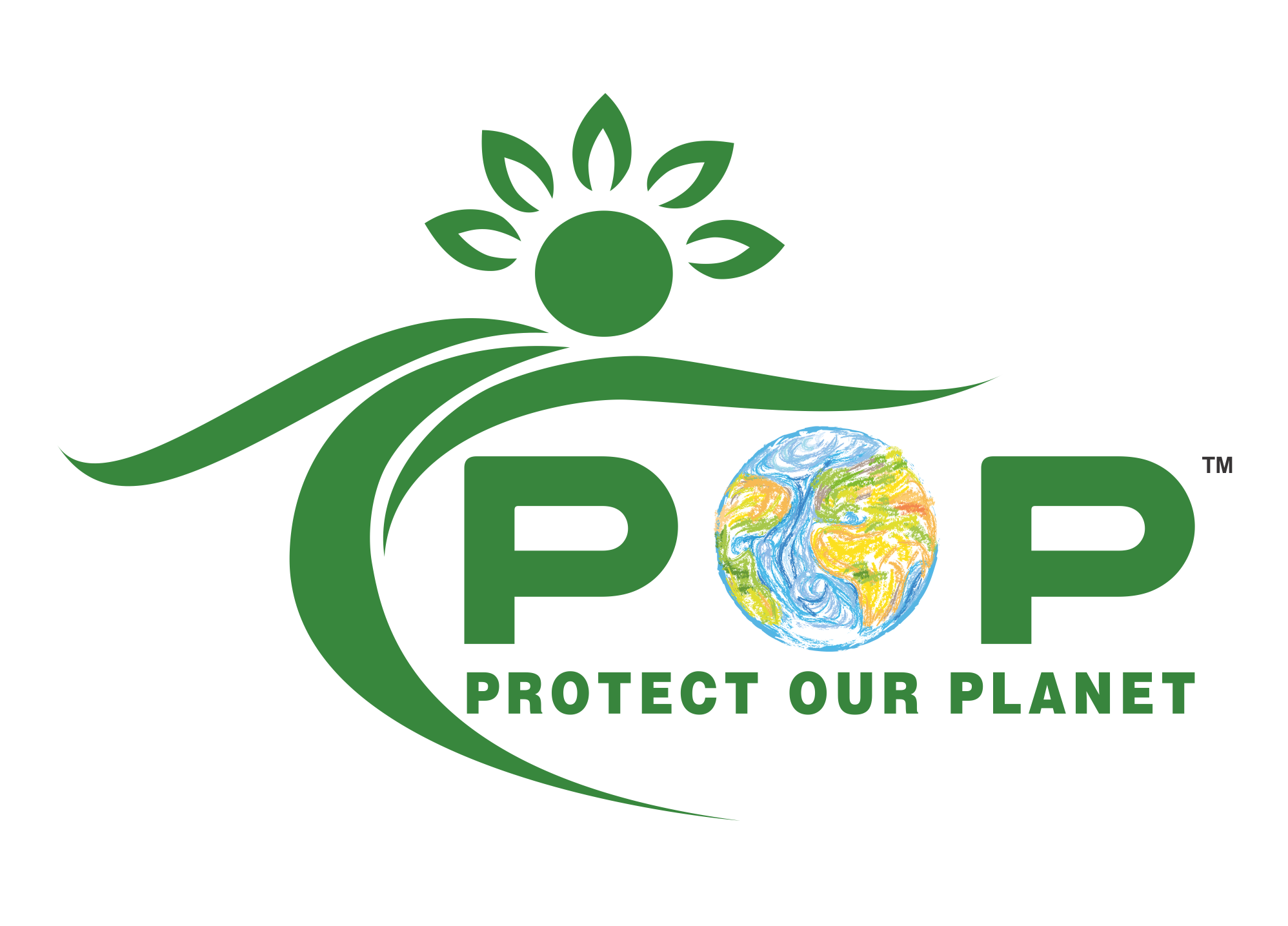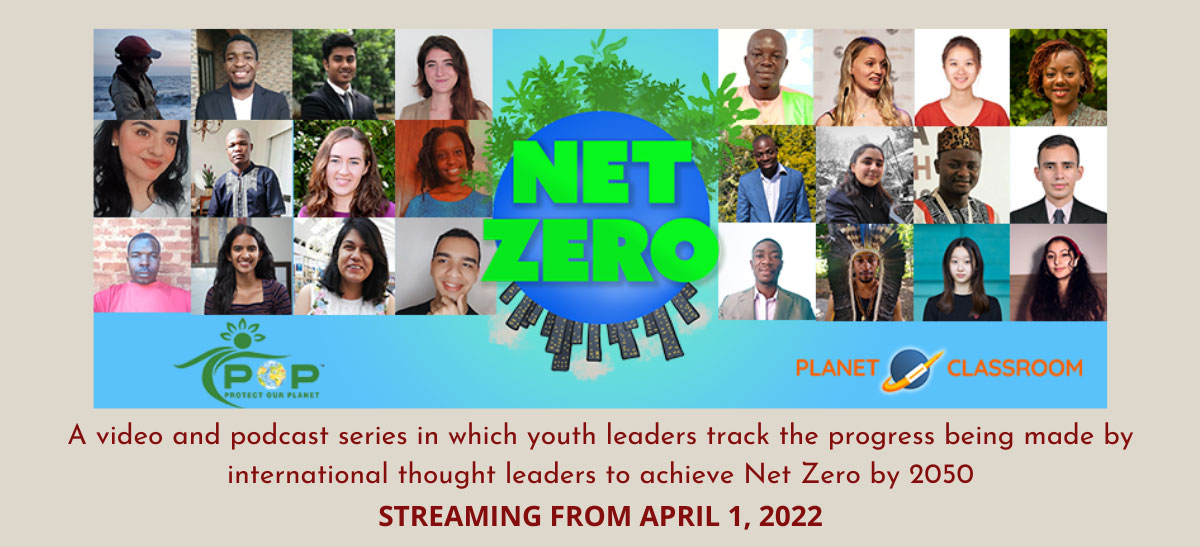



































The Race to Net Zero is on as youth activists monitor the climate commitments presented by global leaders in a new video series
Net Zero refers to the balance between the amount of greenhouse gas produced and the amount removed from our atmosphere. We reach net zero when the amount we add is no more than the amount taken away. Youth will challenge leadership on how they can achieve this and why it matters.
The number of countries announcing pledges to achieve Net Zero emissions over the coming decades continues to grow but what will it take to accomplish the goal and give the world an even chance of limiting the global temperature rise to 1.5 percent?
Climate Activists from nations around the world have created an original video and podcast series with their local environmental thought leaders as well as other key stakeholders to follow-up on the progress countries are making on their climate pledges since COP26.
NET ZERO INTERVIEWS
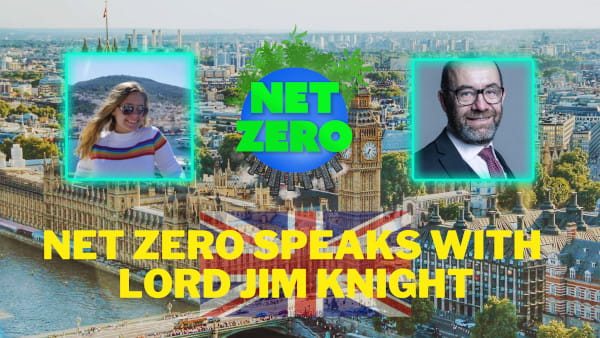
December 1, 2022
How is the UK tackling its Net Zero strategy? The U.K. government has introduced a sustainability and climate change strategy for UK schools but what do teachers and students think of it?
In Net Zero Speaks With Lord Jim Knight, climate activist Ali Grutchfield interviews the Right Honorable Lord Jim Knight of Weymouth who works in education, digital technology and as a legislator. Knight was Chief Education and External Officer at TES Global Ltd and co-founded TES Institute, the fifth largest qualifier of teachers in England. As a UK government minister and MP, Jim was a member of Gordon Brown’s Cabinet before joining the House of Lords after the 2010 General Election.
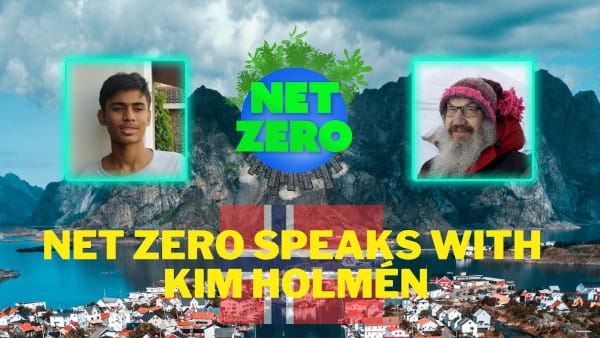
December 1, 2022
Prime Minister Jonas Gahr Støre says the Norwegian government has tightened its climate goals and promises to cut emissions by 55% by 2030 compared to 1990 levels. The government pledged to support investments that help to phase out coal and other fossil sources of energy. What progress has been made?
In Net Zero Speaks with Kim Holmén, climate activist Ved Sanyal interviews Kim Holmén, the Senior Advisor to the Norwegian Polar Institute in Tromsø, Norway. Kim is also a Professor in environment and climate at UiT The Arctic University of Norway and an expert in the fields of human induced climate change and biogeochemical cycle.
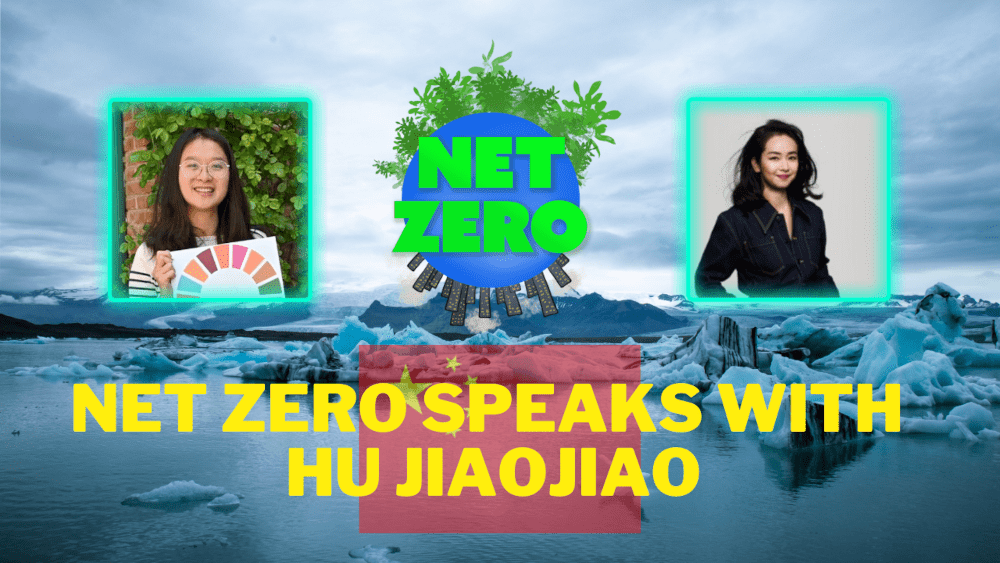
November 1, 2022
Polar Hub researchers are trying to understand how quickly human-caused climate change will cause glaciers to retreat and disappear altogether.
In Net Zero Speaks with Hu Jiaojiao, Net Zero’s climate activist Wen Tian interviews Hu Jiaojiao, a female explorer and Chinese representative of the Access Water expedition and education program. Additionally, Hu Jiaojiao founded Polar Hubs, which works to understand the impact of human caused climate change in the Himalayan region, referred to as the world’s third polar home to 10 major river basins, and some of the world’s highest mountain peaks, including Mount Everest.
The challenges faced by the world’s nations to replace fossil fuels that are damaging our environment with renewable energy and technology alternatives range from political pressures to supply and demand to cost. In Net Zero Speaks with Sam Fankhauser, Net Zero’s Prachi Shevgaonkar, a climate entrepreneur and the founder of Cool The Globe, gets answers to these problems.
Sam Fankhauser is Professor of Climate Change Economics and Policy at the University of Oxford, where he is affiliated with the Smith School of Enterprise and the Environment. He is also Research Director of Oxford Net Zero and a visiting professor at the London School of Economics.
The vast majority of climate change research is only available in English. This is a major stumbling block in addressing the global climate crisis.
In Net Zero Speaks with Sophia Kianni, climate activist Philo Magdalene explores the journey and solutions in the work of activist Sophia Kianni. Kianni is the Founder and Executive Director of Climate Cardinals, a youth-led nonprofit that sources and translates important climate resources into over 100 languages. Currently studying climate policy at Stanford University, the 20-year-old is also the United States representative to the United Nations Youth Advisory Group on Climate Change.
What progress has been made towards South Korea’s 2050 carbon neutrality goal?
In Net Zero Speaks with Justin Jeong, Climate activist Cherry Sung interviews Greenpeace’s Climate and Energy Campaigner Justin Jeong. Jeong has been leading a climate suffrage project for Greenpeace in Seoul since 2019 to urge the South Korean government and the National Assembly to come up with climate policies and ensure the South Korean government responds rapidly to the climate crisis. President Moon Jae-in presented a big vision and pledged to spend significantly on the Green New Deal. What are the major challenges faced and what positive outcomes to date is Jeong most hopeful about?
How does good waste management impact our race to Net Zero?
Youth continue to be the torchbearers for the climate movement. In Net Zero Speaks with Udit Singhal, Climate Activist Priyanka Prakash interviews sustainability champion Udit Singhal. Singhal is the founder of Glass2Sand, an environmentally-friendly “carbon-negative” initiative and “no glass to landfills” movement that he established in 2018 at age 16 to address the growing menace of glass bottles not being recycled and being dumped in already scarce landfills. Today, the Glass2Sand network fosters over 400 collection volunteers and 18 institutional support partnerships in Delhi to amplify awareness and glass waste collection for responsible disposal.
What progress has Mexico made in achieving its climate goals?
In Net Zero Speaks with Adrián Fernández, Climate Activist Jerôme Peyret Oberholzer interviews Fernández, the Director of Iniciativa Climática de México who has worked for more than 30 years on climate change and environmental policy issues in Mexico. Fernández is a leading expert in the areas of air pollution, environmental health, and toxic substances. He was the founder and CEO of Mexico Climate Initiative, a non-profit foundation that promotes climate change mitigation efforts. What are the most important climate lessons Mexico has learned in the past 30 years about the environment and what must she do to achieve her Net Zero goal?
There are over 60 million American students learning mixed or false messages about the climate problem that will dictate their future.
In Net Zero Speaks with Katie Worth, Climate Activist Sofia Lana aims to understand this issue and learn about the education change leaders who are trying to solve it. Lana interviews Emmy-winning journalist Katie Worth whose new book, Miseducation: How Climate Change is Taught in America, exposes how big money and entrenched ideology have led to the intentional miseducation of American children. What are the strategies and solutions needed to get the US Climate Change curriculum on track?
Carbon capture and storage technologies have been around for decades and are recognized as effective ways to reduce carbon emissions. So why haven’t they taken off?
Daniel P. Schrag is the Sturgis Hooper Professor of Geology at Harvard University, Professor of Environmental Science and Engineering, and Director of the Harvard University Center for the Environment. Schrag served on President Obama’s Council of Advisors on Science and Technology. In Net Zero Speaks with Daniel Schrag, Climate Activist Nahid Pérez Ayala gets Schrag’s answers on the policies that should take priority for the world to achieve Net Zero.
The world loses about 15 billion trees a year. Conserving, restoring and growing new trees helps biodiversity and fights climate change. What solutions are leaders in Africa using to reverse the loss of trees?
Dr. Susan Chomba is the Director of Vital Landscapes at the World Resources Institute where she leads WRI’s work on forest protection and sustainable management, restoration, food systems transformation and governance in Africa. In Net Zero Speaks With Susan Chomba, Climate Activist Levy Nyirenda explores the issues of forest restoration, food system supply, carbon emission reduction, and the role of technology in solving the climate challenges faced in Africa.
How can educational systems adapt to empower students to take action on global 21st century issues such as the global climate crisis?
NET ZERO’S Climate Activist, Cherry Sung from South Korea, explores how a conservative and standardized education system could implement an environmental education that empowers people. Sung interviews Chris Dede of Harvard’s Graduate School of Education to discuss his solutions. Dede’s research, which includes infusing technology into large-scale educational improvement initiatives such as climate change curricula, is focused on developing new types of educational systems that prepare learners for the challenges of a 21st century world.
Can agroforestry help mitigate climate change and remove CO₂ from our air permanently? In April 2021, Jamaica targeted an ambitious 60% reduction in greenhouse gas emissions by 2030. The upgraded new goal addressed land use change, forestry emissions, and committing to deeper emission reductions in the energy sector.
NET ZERO’s Climate Activist Kalaan Nibonrix Kaiman interviews UnaMay Gordon, the Principal Director of Climate Change for the Jamaican Government, with over 40 years of climate change and environmental management experience. What are the greatest challenges Jamaica is facing and what climate change strategies are helping it achieve its race to Net Zero?
South Africa produces more than 255 million tons of coal and consumes nearly three-quarters of it domestically, making it the 7th largest producer and consumer of coal in the world. During negotiations leading up to the COP26 Glasgow Conference, South Africa and its partner countries agreed on a $8.5 billion package to accelerate autonomy from coal and deployment of renewable energy.
Join Net Zero’s climate activist Mphathesithe Mkhize as he explores South Africa’s progress to date with educator and environmental thought leader Crispin Hemson, who heads up the Friends of Pigeon Valley initiative.
In Nigeria today, oil and gas generate over 50% of the country’s primary energy mix, while coal contributes over 30% of the power supply for industry. How is Nigeria managing its commitment to reach Net Zero?
Join Net Zero’s climate activist Samuel C. Okorie as he interviews Rep. Sam Onuigbo, former Chair of the House of Representatives Committee on Climate Change, President of GLOBE (Global Legislators Organisation for a Balanced Environment), and the thought leader who sponsored Nigeria’s Climate Change Act
Global audiences are invited to watch climate activist Sofia Lana’s interview with UNESCO’s Alexander Leicht, Chief of the Section of Education for Sustainable Development.
On any given day, over 1 billion children head to school. The United Nations has called Climate Change the biggest threat modern humans have ever faced. Climate education for all students is a crucial strategy in tackling our environmental crisis.
What’s been done in global school systems so far? How can curriculum empower children and young people to take action on the climate crisis so that countries can achieve Net Zero? What kind of climate curriculum is needed? Climate activist Sofia Lana gets the answers to these questions and more.
When it comes to fighting the climate crisis, civic participation is crucial. In this interview with Dr. Manuel Diaz (known as the “Green Citizen of Venezuela”), Climate Activist Ricardo Delgado discusses the progress and the challenges of Venezuela in seeking to meet its Net Zero goals. What role are individual civilians expected to play in achieving zero carbon emissions? What are the achievements accomplished so far and how are non-governmental organizations working collaboratively to support the public sector? Diaz, who has dedicated his life to protecting the environment, gives Net Zero’s Delgado his answers.
Dr. Diaz chairs the Fundación Vida Verde Internacional, co-chairs the Green Citizen Foundation and directs the Global Green.







